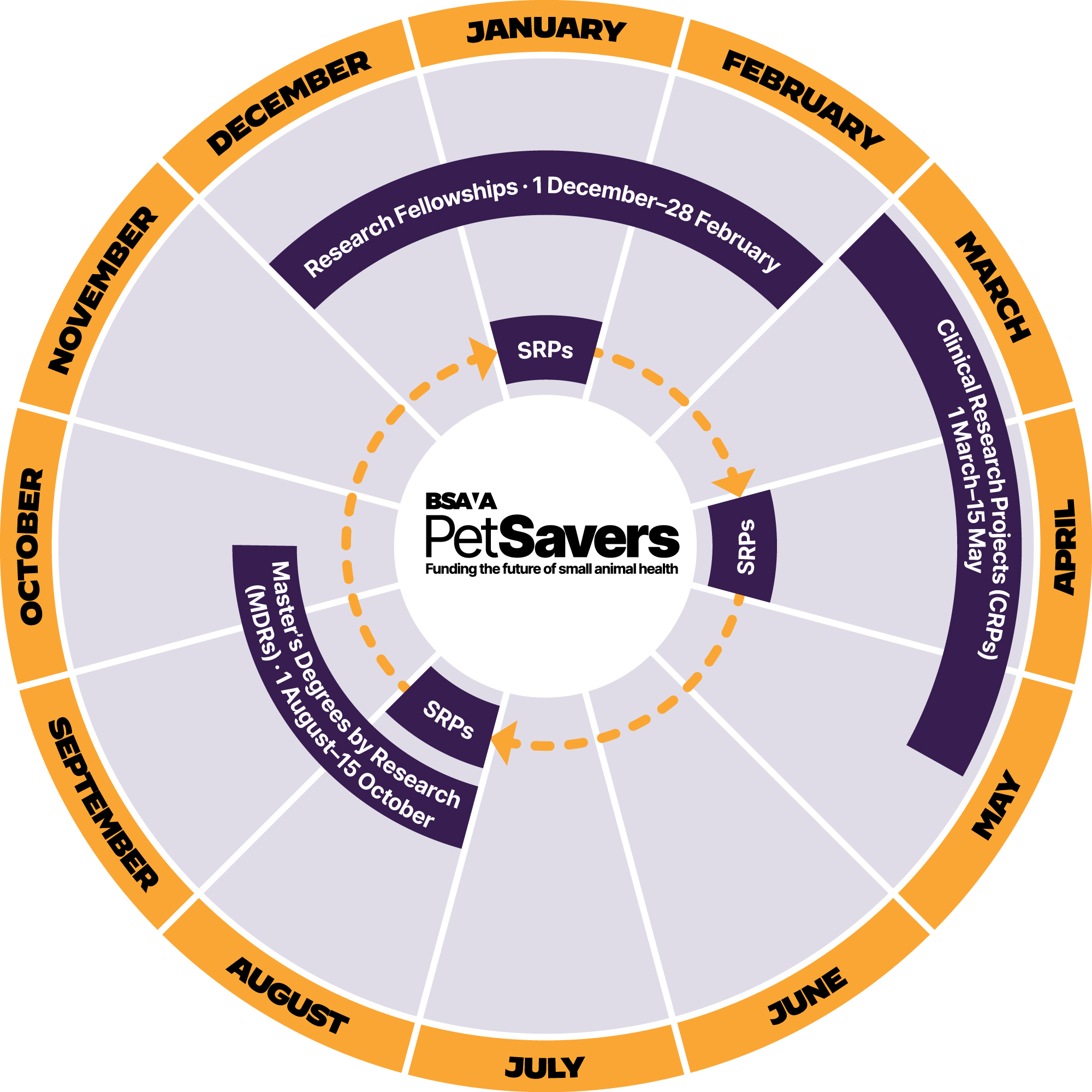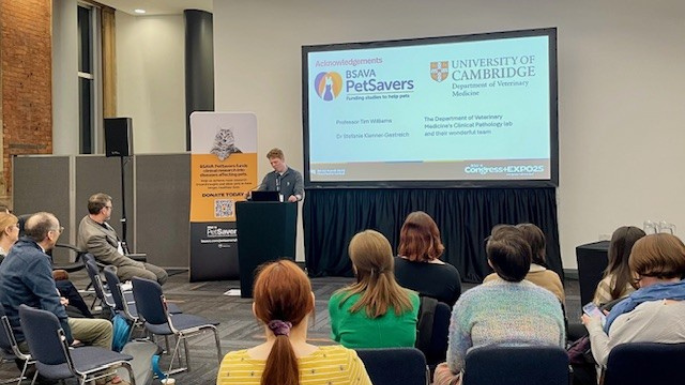“I would be prepared to bet that there are lots of vets who haven’t considered research before but who have always had interesting questions that they would like to answer. If that is the case then it can be a very rewarding experience to get involved with research to start to answer some of these unknowns.” – Dr Conor O’Halloran, practicing small animal vet with a PhD from University of Edinburgh.
Research grants
PetSavers fund five different research grants, suited to various stages of your veterinary research career: Clinical Research Projects (CRPs), Research Fellowships, PhD Studentships, Master’s Degrees by Research (MDRs), and Student Research Projects (SRPs). Find out more about each grant type below.
Before making an application, you are advised to read the Guidance for Applicants and the page for the grant for which you are applying.
Statement on experimental animals
We do not fund experimental research requiring licence under the Animals (Scientific Procedures) Act 1986. The Act makes a distinction between experimental procedures and “recognised veterinary practice” which is defined as ‘procedures and techniques performed on animals by veterinary surgeons in the course of their professional duties, which ensure the health and welfare of animals committed to their care’. The use of experimental animals is not permitted in any work funded by BSAVA PetSavers, and this includes work on tissues derived from experimental animals.
The RCVS provides further guidance on Recognised Veterinary Practice and Ethical Review as well as information on their Ethics Review Panel.
Eligibility criteria
• To qualify for a PetSavers grant, a research proposal must meet the following criteria:
• Research projects must be undertaken within the UK.
• We cannot fund projects that have already been started or completed.
• The study must involve only naturally occurring disease in small animals; there must be no experimental or artificial induction of disease. Any interventions on animals (including obtaining samples) would be considered part of recognised veterinary practice.
• The results will directly benefit cats, dogs or other companion animals, and the anticipated results of the study will result in a change in diagnosis or management of small animal disease.
• The study must be supervised by people with appropriate veterinary clinical skills and knowledge.
• Ethical approval has been obtained or, if not, the steps being taken to ensure that the project achieves ethical approval are outlined.
In all cases, the funding decision of the grant awarding committee is final.
Follow the links below to apply for our different grant types











